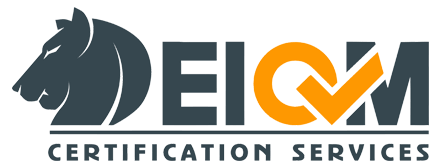ISO 50001 is an internationally recognized standard for energy management systems. It provides organizations with a framework to establish, implement, maintain, and improve energy performance, leading to increased energy efficiency and reduced environmental impact. In this article, we will explore the key aspects of This standard and understand its importance in today’s world.
What is ISO 50001?
ISO 50001 is an international standard developed by the International Organization for Standardization (ISO). It provides a systematic approach for organizations to improve energy performance, reduce energy costs, and enhance overall sustainability. This standard focuses on establishing an energy management system (EnMS) that enables organizations to set objectives, implement action plans, and monitor energy performance to achieve continuous improvement.
Why is ISO 50001 important?
Energy management is a critical aspect for businesses and industries worldwide. 50001 standard offers a structured framework to effectively manage energy resources, optimize energy consumption, and reduce greenhouse gas emissions. By implementing This standard, organizations can enhance their energy efficiency, improve operational performance, reduce energy costs, and demonstrate their commitment to sustainability and environmental responsibility.
Benefits of implementing ISO 50001
Implementing iso 50001 brings various benefits to organizations:
- Energy cost savings: helps organizations identify energy-saving opportunities, leading to reduced energy consumption and cost savings.
- Improved energy performance: The standard enables organizations to monitor and measure energy performance, identify areas for improvement, and establish targets for energy efficiency.
- Enhanced environmental sustainability: promotes the efficient use of energy resources, leading to reduced environmental impact and greenhouse gas emissions.
- Compliance and regulatory advantages: By adhering to This standard, organizations can comply with energy-related regulations and gain a competitive advantage in the market.
- Increased stakeholder confidence: 50001 Certification demonstrates an organization’s commitment to energy management and sustainability, instilling confidence in customers, investors, and other stakeholders.
Key requirements
specifies several requirements that organizations need to fulfill to establish an effective energy management system. These include:
- Energy policy: Organizations must develop a clear energy policy statement, outlining their commitment to energy management and continual improvement.
- Energy planning: A systematic approach should be adopted to set objectives, targets, and action plans for improving energy performance.
- Implementation and operation: Resources, roles, responsibilities, and procedures should be defined to implement and maintain the energy management system.
- Performance evaluation: Monitoring, measurement, analysis, and evaluation of energy performance are crucial to identify areas for improvement and track progress.
- Management review: Regular reviews by top management ensure the EnMS’s effectiveness, suitability, and alignment with organizational objectives.
The ISO 50001 certification process
Organizations can seek This certification to validate their compliance with the standard. The certification process involves the following steps:
- Preparation: Organizations assess their readiness for certification, conduct internal audits, and address any gaps in compliance.
- Application: The organization submits an application for certification to an accredited certification body.
- Stage 1 audit: The certification body reviews the organization’s documentation, processes, and readiness for the certification audit.
- Stage 2 audit: An on-site audit is conducted to evaluate the organization’s implementation of the energy management system.
- Certification decision: Based on the audit findings, the certification body makes a decision regarding the certification.
- Surveillance audits: Regular surveillance audits are conducted to ensure the organization’s ongoing compliance with 50001 requirements.
Case studies: Successful implementation of ISO 50001
Numerous organizations worldwide have successfully implemented ISO 50001 and reaped the benefits of improved energy management. Case studies highlight how organizations across various sectors have achieved energy efficiency, reduced costs, and demonstrated environmental responsibility through ISO 50001 implementation. Some notable examples include:
- Company X: By implementing ISO 50001, Company X reduced its energy consumption by 20% and achieved significant cost savings within a year.
- Organization Y: Organization Y implemented ISO 50001 and successfully aligned its energy management practices with its overall sustainability goals, resulting in enhanced environmental performance.
Challenges and considerations
While ISO 50001 offers significant advantages, organizations may encounter certain challenges during implementation. These challenges include:
- Resource allocation: Establishing and maintaining an energy management system requires dedicated resources, including time, personnel, and financial investments.
- Cultural change: Shifting organizational culture to prioritize energy management and employee engagement may require time and effort.
- Complexity: Depending on the organization’s size and complexity, implementing ISO50001 may involve dealing with various energy-consuming processes and systems.
Integrating ISO 50001 with other management systems
Organizations often integrate This standard with other management systems, such as ISO 9001 (quality management) and ISO 14001 (environmental management). Integration ensures a streamlined approach to managing quality, environment, and energy-related aspects, leading to greater efficiency, reduced duplication, and improved performance.
The future of ISO 50001
ISO 50001 is continuously evolving to address emerging energy management challenges and keep pace with technological advancements. The standard is expected to incorporate elements related to renewable energy, carbon neutrality, and energy storage, aligning with global sustainability goals.
Conclusion
ISO 50001 provides organizations with a structured approach to manage energy resources effectively, improve energy performance, and enhance overall sustainability. By implementing ISO 50001, organizations can achieve energy cost savings, reduce environmental impact, comply with regulations, and gain stakeholder confidence. As businesses strive to become more sustainable, ISO 50001 plays a crucial role in driving energy efficiency and contributing to a greener future.
Contact EIQM
To contact us, please fill out the form below. We will contact you as soon as possible. You can also apply through this form if you would like to receive system certification or representation of EIQM Certification Body.

